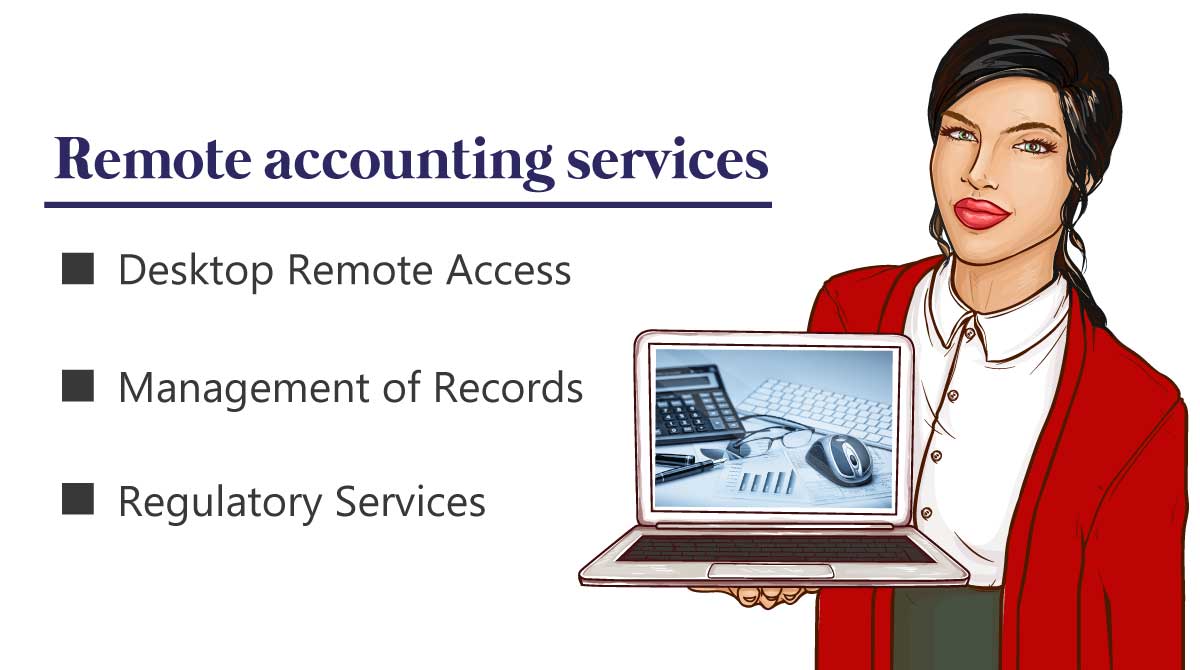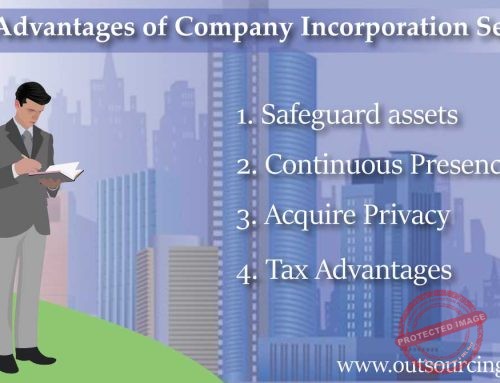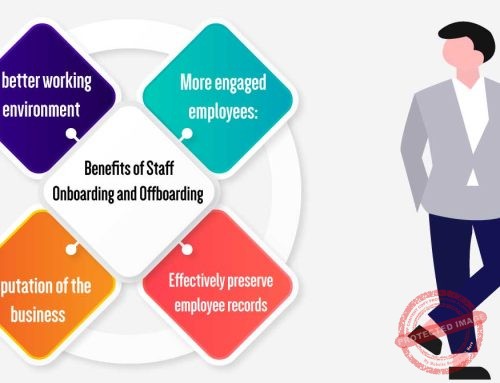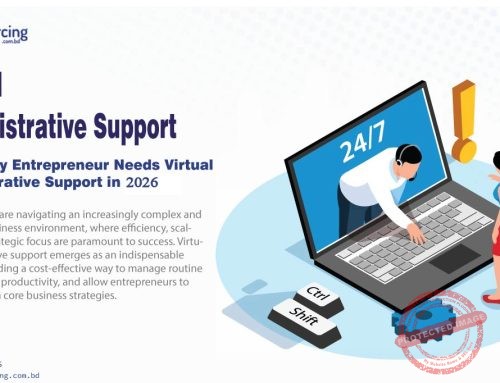Your accounting and finance department should perform more than just transaction processing and financial reporting. It needs to generate knowledge and motivate the activities that have an effect on the productivity and operations of your company.
Payroll, accounts receivable, and financial reporting responsibilities are all available for businesses to outsource through accounting services.
Therefore, it is possible to ask, “Do outsourced accounting services actually position your company for growth?”
The best way to free yourself from this time-consuming activity is to outsource accounting tasks.
To improve the cash flow, and determine the most and least profitable product lines for potential future expansion plans, many businesses outsource their accounting responsibilities to specialized individuals.
So, without delay let’s crack it down in more detail!
How Does Outsourced Accounting Services Grow Your Business?
Long-term financial savings, increased productivity, and specific advice on the steps you should take to grow your company are all benefits of using an outsourced accountant.
Outsourcing is mostly done to minimize expenses, focus on core business operations, and overcome capacity issues. Leading companies employ outsourcing to promote transformative change and enhance financial performance.
Most businesses struggle with constrained resources and rising expectations. It can be difficult to meet shifting needs with your current resources over time because your needs are likely to alter. It can assist in meeting any needs that could arise as your firm develops.
Many businesses lack the infrastructure or resources needed to quickly expand and grow their operations. By using large-company capabilities, small businesses can scale up more quickly due to accounting outsourcing.
Utilizing outsourced accounting services makes sure that you select the best accounting software and KPIs for your company.
Market for Outsourcing in Finance and Accounting to Grow to $56.6 Billion by 2027
The global market for finance and accounting outsourcing, estimated at US$37.9 billion in 2020, is expected to reach a revised size of US$56.6 billion by 2027 under the altered post-COVID-19 economic scenario.
Explore The Outsourcing Accounting Services Cost
The hourly cost of outsourced accounting services should be contrasted with the total cost of employing accounting professionals internally, which includes pay, benefits, overhead, etc.
However, what’s more crucial is the outsourcing companies’ capacity to offer the knowledge necessary to avoid costly, even catastrophic, business mistakes.
For a reputable service, the average cost of outsourcing your accounting is between $50 and $100 per hour. Depending on the complexity and amount of your company’s transactions, a typical monthly charge for accounting needs could range from $250 to $2,000.
In order to ensure that your accounts are balanced and your checkbooks are in order, you can recruit offshore employees by outsourcing your accounting. They might work as data entry professionals in addition to being your financial auditors.
An accountant can assist you in designing the transaction flow that best suits your firm by interpreting the data and explaining what it means. For a high-quality service, the normal cost of outsourcing your accounting might range from $100 to $250 per hour.
For a service that can advance your accounting and put the future of your company in focus, you may budget anywhere from $75 to $5,000 every month.

An Overview of Remote Accounting Services
Your full-service, strategic business partner, Remote Accounting Services and Business Advisory is dedicated to assisting you in running your company more successfully. It offers a comprehensive selection of remote services to sole proprietors, small businesses, and nonprofit organizations that ease responsibilities and primary approach.
With the use of remote accounting services, you can continue to offer small businesses the same caliber of service that would often be carried out on-site.
When a company wants to switch to remote accounting services, it has a few possibilities, which are as follows:
1. Desktop Remote Access:
The administration of remote desktop services does not require expensive gear or specialized software, making it one of the fastest and easiest options available. The company may also use any accounting software.
2. Management of Records:
Outsourcing accounting activities is now a simple process due to the usage of cloud technologies in accounting.
The most crucial duties in outsourcing accounting services include managing payroll, creating and maintaining ledgers, managing cash flow, managing subscription renewals, processing invoices, and setting up a contemporary accounting system.
3. Regulatory Services:
The majority of your accounting tasks, such as audit reporting, compliance management, reporting, employee and vendor communication, cash flow analysis, and KPI reporting, will be outsourced if you outsource controller services to an accounting company.
4. Constructing Financial Reports:
All types of enterprises and companies require the preparation of financial reports as a crucial accounting function. To generate detailed and trustworthy financial reports, you frequently need to have external accountants examine the financial health of your company.
5. Analysis and Planning for Finance:
A reputable and skilled accounting business is the perfect choice if you want to outsource your financial planning and analysis.
As part of these services, your company’s financial situation will be thoroughly evaluated, and appropriate tactics will be used to achieve maximum growth and the best performance.
In order to make educated decisions for the development of your business, you will be able to have reasonable cash flow estimates and follow the guidance of qualified accountants.
According to projections, the market share for accounting services would increase at a 12.7% compound annual growth rate (CAGR) from $1.17 trillion in 2021 to $1.32 trillion in 2022.
Why Are Outsourced Remote Accounting Services Beneficial?
Some of the largest accounting difficulties of the day can be addressed uniquely through outsourcing. The benefits of outsourcing accounting services should be taken into account if your business is debating the best way to record transactions.
1. Cost of outsourcing accounting:
Accountants who are outsourced can be hired for a fraction of the price of hiring, managing, and retaining an in-house accountant.
Many times, outsourcing companies can complete the same amount of work with the same level of quality and consistency as your own accounting team, but at a significantly cheaper price.
2. Convenient and effective:
Correct accounting requires time, and businesses might not have the personnel or desire to spend money on the necessary resources. Instead of giving in, hire an outsourced accounting company to manage the chores and free up time to work on other high-priority tasks.
3. Asset Availability:
Cash flow management requires patience, knowledge, and a deft hand. Using an outsourced accounting company, which frequently charges a fixed price for its services, can often increase cash flow.
4. Availability of Accounting Staff:
In-house accounting teams are difficult and expensive to completely staff due to the intense competition for experienced accountants. Outsourcing is a far more convenient method of obtaining qualified accounting personnel, including generalists and experts.
5. Complete Reporting:
To manage your organization, it is essential to comprehend your results. An outsourced provider will offer you a report on your operations, concentrating on both positive and negative trends. This information is crucial for guiding your organization moving ahead.
6. Knowledge of accounting:
Even if they don’t need to have expert accountants among their staff, most businesses eventually require specialized accounting knowledge.
As needed, clients can consult with a variety of professionals that outsourcing companies employ. Think of it as access to knowledge on demand.
Pros and Cons of Outsourcing Accounting Services
Prior to making any significant choices, it’s crucial to carefully consider the pros and cons of each option, as well as the financial and risk ramifications for your company.
Consider all options before settling on any company idea because even the best ones could have some negatives.
Pros:
1. Within-Business Cost Savings:
They require regular payments, health insurance, tax payments, government contributions, retirement and pension payments, and paid time off. By reducing these prices, you can cut back on both your equipment and overhead costs.
2. Improved Productivity Within The Company:
Simple blunders and faults that may have occurred will be corrected as the financial management of your company gets better. This will enhance the way your organization seems to outsiders overall and give it a new aura of expertise.
3. Improvements in Internal Controls in The Workplace:
When accounting controls are outsourced, the likelihood of errors and fraud is significantly reduced. Due to the fact that they are an outsourced business, you can expect a dedicated team of accountants to continuously review your financial data.
4. An Active Strategy:
Making the proper company decisions can be aided by an understanding of prospective expenditure and cash flow issues. Additionally, having a set of eyes on funds gives confidence and peace of mind when making financial decisions.
5. Contractual Obligation:
Compared to internal accounting departments, online accounting service providers have a higher obligation. They have to follow the specified guidelines.
Additionally, managing contracts or agreements with foreign businesses is considerably simpler than managing employee relations, HR activities, etc.
Cons:
1. Loss of Control:
Using an internal accountant makes it simpler to communicate within a firm, particularly when discussing financial matters. Additionally, outsourcing lessens your total ability to govern the accounting division, which can be extremely risky if not managed properly.
2. Reduced Control:
Business owners may find it challenging to hand over management of their financial records to a third party. To obtain updates and weekly/monthly reports, they can always get in touch with the account manager, but it’s crucial to have faith in the outsourced link.
3. Communication Gap:
Accounting firms hired by a third party will have a schedule. You can’t just ask a question or get a quick response by going down the hall. Establish the requirements your company has for its accounting department.
4. Security Threats:
It may appear to be a security concern to give another company access to your finances. And it may be if the company is the wrong one. Asking potential vendors for references and following up with them is one strategy to prevent a security breach.
5. Timely Turnaround:
If small business owners outsource their accounting tasks, they could worry about the timeliness of their job. While it is undoubtedly helpful to have an accountant nearby who can drop everything to retrieve data, it is not always practicable.
Can Remote Accounting Companies Lower Your Financial Risk?
Outsourced accounting specialists work with a diverse range of clients every day. They are aware of the requirements of various business sectors and nonprofit organizations, as well as the kinds of reports that are most crucial to track and whether they should be produced on a cash-based or accounting basis.
Your company will be able to reduce overhead expenses. You won’t pay for employee health insurance, retirement, vacation and sick leave, or workers compensation by selecting an outsourced accounting firm.
So, you can reduce workplace space requirements and manage with less oversight. You only assess the accounting work that has been outsourced when you are prepared to do so.
Companies are shifting to outsourced accounting, and bookkeeping services for a variety of reasons, including:
1. They are able to utilize teams with knowledge they otherwise might not have been able to afford.
2. Since it enables the CEO or owner to concentrate on the main business.
3. They are frequently less expensive and more efficient.
4. Receive trustworthy and accurate findings.
Differences Between Outsourced Bookkeeping and Accounting
The idea that bookkeeping and accounting are one profession is a common myth. Despite their apparent similarity, there are some obvious distinctions between the two. Here are the differences between accounting and bookkeeping to help clear up any confusion.
Bookkeeping
Accounting
1. The core considerations of accounting are the recognition, quantification, and recording of financial transactions.
1. The act of accounting involves compiling, analyzing, and disseminating financial transactions that were recorded in ledger accounts.
2. The goal of bookkeeping is to maintain accurate and organized records of all financial activities.
2. Accounting seeks to assess the financial status and further disclose information to the appropriate authorities.
3. For bookkeeping, no particular skills are required.
3. Accounting is an analytical and sophisticated field that calls for specialized knowledge.
4. Decisions made by management cannot be dependent on the information provided by bookkeeping.
4. The management can make crucial company decisions based on the data provided by the accountants.
5. There are essentially two different types of bookkeeping: single entry and double entry bookkeeping.
5. The accounting division creates a company’s budgets and plans loan applications.

Outsource Bookkeeping and Payroll Services
For many small businesses, startups, and business owners, hiring an accountant can be challenging.
If you can think about contracting with an organization that has the necessary training and experience to handle your accounting needs. Also, which organization can complete the same task more skillfully and affordably.
For the same reason, several executive directors have mentioned a variety of advantages of outsourcing bookkeeping and accounting services.
1. Reduce the duration and expense of the hiring process:
You’ll need to set aside this time for the employee or for yourself because the hiring process costs your business time and money. Additionally, expenses and time correlate equally.
2. Professional bookkeepers and accountants:
You might be able to recruit a higher-skilled professional through outsourcing at a reasonable cost.
To remain competitive in the market, organizations that provide outsourced bookkeeping and accounting services must constantly raise their bar in terms of education and experience.
3. Easily Expanding Accounting:
The accounting service providers have the resources to scale your services quickly and considerably. Additionally, hourly rates are now being used by accounting and bookkeeping service providers.
It implies that there won’t be any interruptions as you adjust the hours up or down.
4. Modern automation techniques:
In order to save time, businesses frequently utilize accounting automation software. It will not only save time, but it will also mitigate risk. Accounting automation lowers human error rates.
Afterward, accountants receive real-time reports from automation software. They assist in identifying potential problems and resolving them early on. Although, internal fraud will therefore be less likely.
Discover Finance and Accounting Outsourcing
A business’s ability to function and support its expansion goals depends on its finance and accounting department. Accounting, taxation, bookkeeping, financial planning, and analysis are all included in the management and planning of finance and accounting.
Companies can delegate the financial management of their company to a group of people by using finance and accounting outsourcing.
Accounting and Finance businesses can increase the effectiveness of their accounting and financial management while cutting costs by using outsourcing services.
- Taking on the liability will help to lower corporate risk.
- Utilize cutting-edge technology and skilled personnel to concentrate on your core business and achieve a competitive edge.
- Improve risk management by implementing strict disaster recovery strategies and thorough backup preparations.
- No issues with the employees, like turnover, Training and HR Management.
- Reserving internal resources for tasks that are absolutely necessary.
Hiring Affordable Accounting Services Is Not An Easy Task- A Myth!
Small businesses can manage their finances and stay competitive by making the appropriate accounting company selection the first time. This occasionally entails taking on any job that presents itself.
There is a myth that it is tough to outsource accounting and it is not affordable. This is not at all true. Accounting management requires hiring a specialist resource, which is expensive. You cover their salary and other expenses like payroll taxes, insurance, and paid time off.
However, if you outsource your accounting requirements. Pay either on a project-by-project basis or per hour.
By doing this, you only pay for the efficient and productive services that you actually use. Additionally, it offers you more time to concentrate on tasks that increase revenue and attract clients.
Outsourced Accounting Firms: The Challenges
1. Recognizing the Range of Support:
A company that has already created a complicated arrangement of business units would have different transactional support demands than a beginning.
2. Setting Reasonable Goals:
Unfulfilled promises can disappoint your customers or business partners and reflect poorly on the way your company conducts activities like accounting.
Furthermore, if you and your accounting partner have a clear understanding up front, you can prevent unpleasant surprises down the road, particularly with regard to the contract.
3. Exercising control:
To avoid these problems, a dependable outsourcing partner will involve you in the decision-making process. Find a service provider who is eager to understand the details of your company, such as its history, workplace culture, and business procedures.
4. Collaborating across time zones:
The ability of your team members to achieve deadlines that are essential to the operation of your organization is something that you, as a manager or owner, would undoubtedly take into account.
You could be concerned about your offshored teams’ ability to work together given the time zones involved or whether they will be able to produce the outcomes you need. Communication with your outsourced employees, who are likely 12 hours away, is another worry.
4 Effective Tips for Outsourcing Remote Accounting Solutions
The following vital advice will guarantee a successful and seamless transition:
1. Determine Your Needs and Make a Plan:
You should evaluate your spending plan in relation to the price of keeping a full-time accounting team and the necessary technology stack. You’ll not only be able to see the financial benefits of outsourcing, but it will also save you from going over budget.
2. Emphasis on Technology:
Systems for accounting and finance that make use of cutting-edge technology might put you ahead of the competition. You can choose an outside provider with such processes in place if you cannot afford to invest in such technology.
3. Selecting a Partner for Outsourcing Smartly:
Make sure the vendor you select has a successful track record in FAO. To evaluate their effectiveness and work ethic, look through historical reviews and comments from clients.
4. Give the vendor reasonable deadlines:
Processes in finance or accounting are frequently delicate and complex. A new financial strategy’s results may not become apparent for several months.
So it may not be a good idea to pressure your vendor by giving them impossible deadlines because doing so could cost you money.
FAQs
1. Why do businesses outsource their accounting?
You can obtain the whole accounting department experience through the outsourcing of financial services, saving yourself the trouble and expense of an internal employment procedure.
Financial experts with knowledge and experience are available to you, freeing you your valuable time and allowing you to focus on other important duties.
2. Is outsourcing accounting preferable?
By outsourcing your accounting and finance, you can acquire the specialized skills your company needs. Companies that outsource their work hire professionals in accounting and finance.
3. What are the three main accounting disciplines?
There are three different forms of accounting: cost, managerial, and financial. Despite the fact that all three accounting procedures are essential to a company’s smooth operation, they each have a unique purpose and significance.
4. What are the 4 different kinds of outsourcing?
- Competent outsourcing
- Outsourcing of IT
- Outsourcing in manufacturing
- Outsourcing of projects
5. Which branch of accounting is most in demand?
A tax accountant.
To Conclude
The independence that outsourcing accounting offers is ultimately what makes it advantageous. Even if the effects of business disruption are enduring, outsourcing has embraced the change and is now a key component of many companies’ expansion plans.
In addition to saving a considerable amount of time and resources, they can obtain crucial financial information to support business growth.
You have access to a staff of full-service accountants committed to the security and prosperity of your company. These experts will quickly integrate the necessary infrastructure into your firm, providing you the scalability and automation your business needs.






